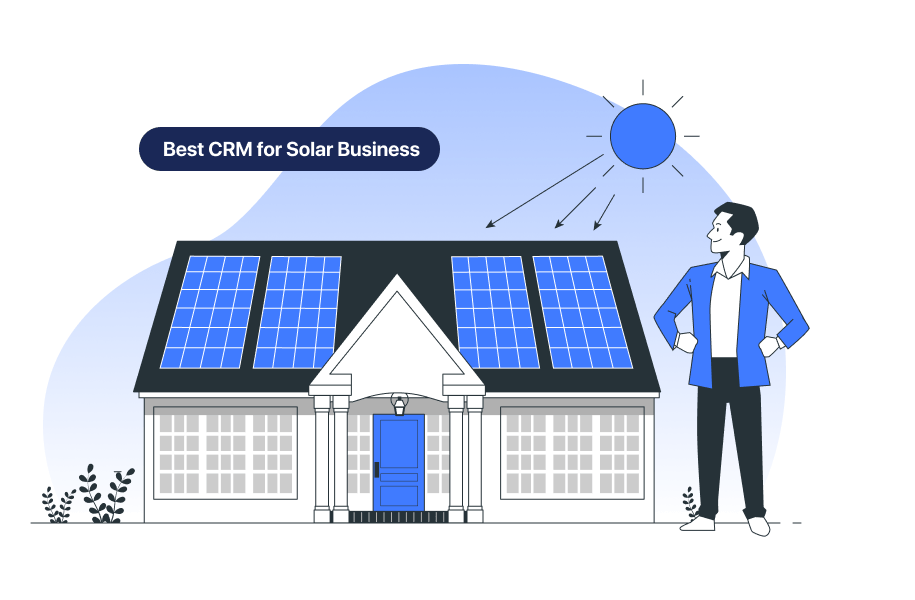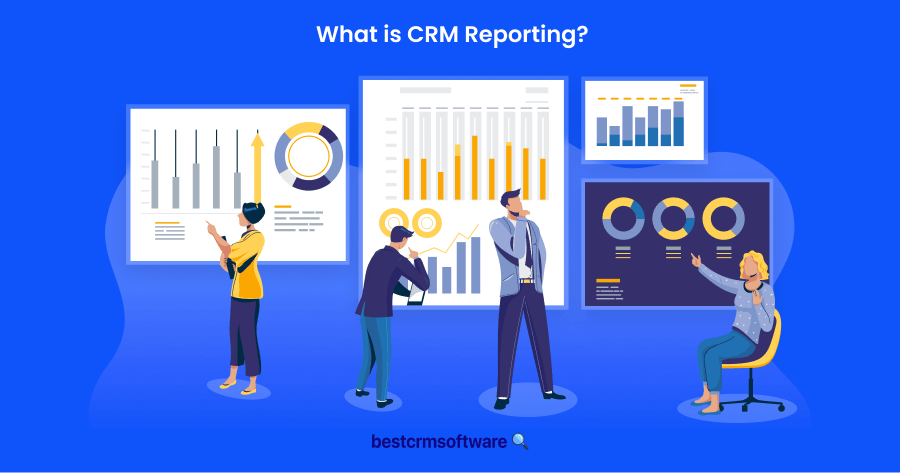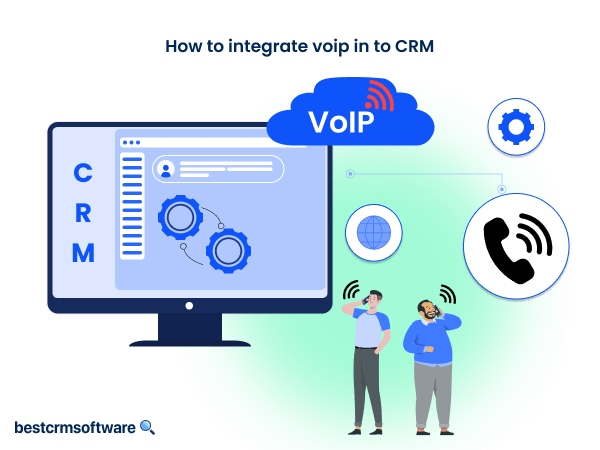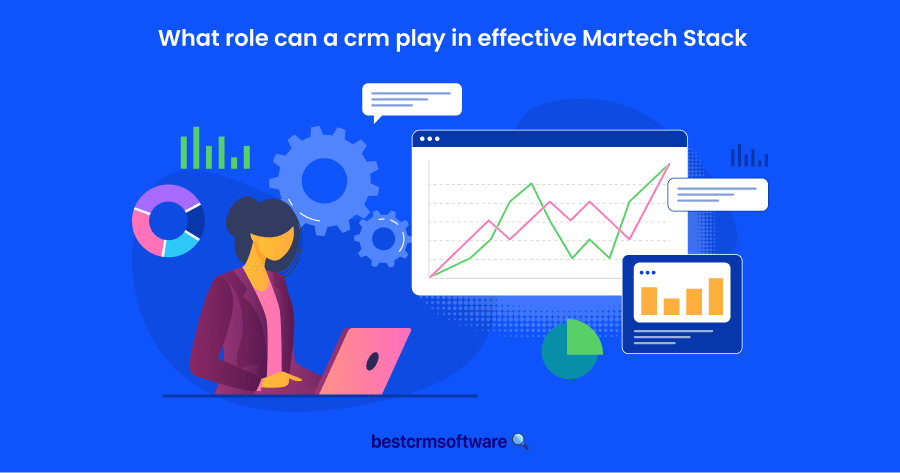
Best CRM Software for Solar Business
In a Nutshell
CRM technology is constantly evolving to provide increased usability and accessibility. As a CRM manager, I’ve reviewed my fair share of CRM for solar companies. I know what makes each tool ideal for this industry. The following software options are tailored for solar businesses. The range of tools helps businesses complete their daily operations effectively.
10 Best CRM Software for Solar Industry Shortlist
After thoroughly reviewing and testing the various CRMs around, I’ve narrowed the best ones down to the following 10 tools:
- Pipedrive – Best all-around CRM and financial package for solar company
- Zoho – Highly customizable option for complex operations
- Capsule CRM – Excellent value for money
- HubSpot – Exceptional adoption and training process
- Shape – Dedicated CRM features for the solar business
- Spotio – Advanced features that are ideal for field sales teams
- Freshworks – AI-powered sales pipeline to enhance sales
- Salesforce – Fantastic task management features to manage multiple deals
- Insightly – Best for integrated project management and data analytics
- ActiveCampaign – Ideal for email marketing and automation
Customer Relationship Management (shortened to CRM) is a valuable tool in many industries. With the solar market growing, it’s also becoming essential in this industry. It provides various benefits to small, medium, and large businesses. I examine why exceptional solar CRM software can make a difference in business. I also look at which is best for the solar industry.
Why Solar Companies Need Good CRM Software
The solar industry is growing remarkably. This is partly due to global issues of fossil fuel and greenhouse gas emissions. The US reached 20.23.6 gigawatts in new solar photovoltaic capacity installations in 2022, and that count was even higher in 2021.
However, with this significant growth comes the need to manage a solar business better. Companies now have hundreds of clients. They must keep in touch to organize maintenance, repairs, or additional installations.
Many companies advertise their services online. As such, the competition among businesses is at an all-time high. That’s where CRM for solar companies comes into play. It’s a tool that can give you the upper hand over your competitors.
CRM helps businesses manage their clients and contacts, keep track of leads, and drive sales. Its various features help with these goals, and it helps your team effectively manage their time. However, what’s the best CRM for the job?
The Top 10 Best CRM Software Solutions for Solar Businesses

Why we like it
Over 100,000 companies trust Pipedrive in 179 countries, with a 4.4/5 average rating with most companies. The company allows you to tailor the CRM to your business and brand and automate various repetitive processes.
It also presents excellent value for money, as its basic plan starts at $24/month/user or $14/month/user if you opt for annual payments. It also provides a free trial. Packages can have unlimited users, contacts, and custom fields.
The most important features for Solar Businesses
Pipedrive has various features, but I can divide most of them into the following three categories:
- Sales Software: This software includes various exceptional tools. These tools help you with lead generation and management, sales automation, valuable insights, reports, email campaigns, and communication. It’s all the basic CRM features you need to connect with your customers.
- Email Software: The email section is all about marketing automation. It helps you start email campaigns, segment your communication, and get email analytics. These analytics can help you know when a client opened your email and when to contact them again.
- Integrations: While various integrations can make your daily operations easier, I’m excited about Solar Monkey. Pipedrive integrates with the Solar Monkey app, which lets solar panel installers view 2D and aerial imaging with shading analysis to help with installations.
Pros
- Excellent scalability in packages
- Easy set-up and adoption process
- Robust third-party integration with apps like Solar Monkey
Cons
- There’s no ticket-based support or native helpdesk

Why we like it
Zoho ranks high on my list because it’s a highly customizable option and offers excellent value for money. However, I should start with a disclaimer that this CRM can’t as intuitively integrate with solar software as some of the other options.
Still, it remains a top choice because the free plan is fully functional and ideal for driving sales. Even the low-cost $20/month/user packages come with a full suite of features that make it easy to use.
The most important features for Solar Businesses
Since this CRM focuses on driving sales, many of its features you’ll use in the solar business are sales-related:
- Inventory: Zoho’s inventory tool is an essential feature. It ensures you can keep track of all your solar paneling equipment and see when you’re running low on something.
- Document Creator: Custom design forms, quotations, and invoices. You can create pre, and post-inspection forms, pull up quotes on-site, and send invoices within seconds.
- CRM Suite: The CRM suite is optimized for tracking customers. It also enhances sales through lead generation, management, and other features.
Pros
- Low-cost packages include comprehensive tools
- Customizable UI and various reporting options
- Fully-functional free plan and 14-day free trial for packages
Cons
- It doesn’t intuitively integrate with solar paneling apps
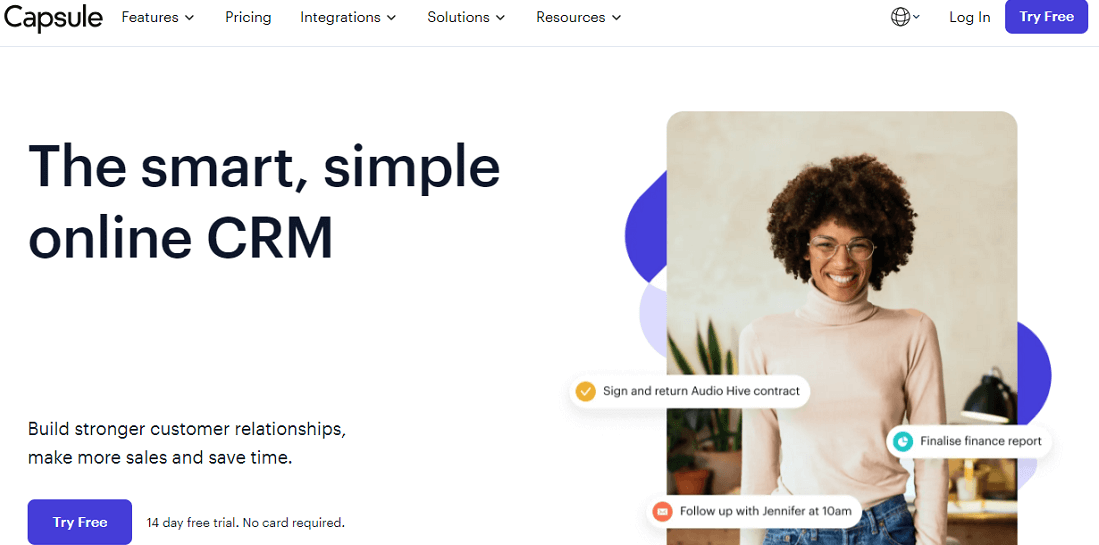
Why we like it
Capsule CRM provides exceptional value for money, especially for smaller businesses that don’t have a large budget. I like its free version, which permits two users and 250 contacts and boasts all the basic features of the starter plan.
The starter plan begins at $21/month/user, though it can go down to $18/month/user if you pay annually. I also love that it integrates with over 500 business applications, making it a highly versatile tool.
The most important features for Solar Businesses
As there’s a wide range of features available with this software, I talk about the ones best for the solar paneling business:
- Pipeline Management: This software boasts a comprehensive pipeline management tool. It lets you create multiple pipelines for different products and markets. You can also see all of your pipelines at a glance and summarise your sales.
- Task Management: Track your sales, installations, inspections, and meetings. This management tool ensures you can add events to your company calendar, receive reminder emails, and even automate repetitive tasks.
- Contact Management: Keep track of every client and what they purchase or want to purchase. Create profiles for your customers and easily access their data.
Pros
- Comprehensive task management
- Extensive pipeline features and management
- Exceptional value for money for smaller businesses
Cons
- No solar-specific integrations
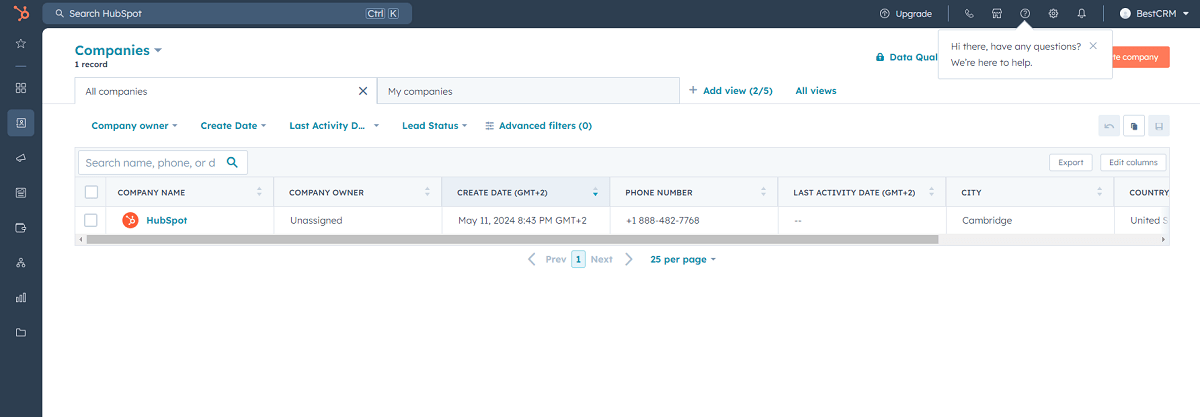
Why we like it
HubSpot is an exceptional CRM for a solar company looking for a tailored experience. While it’s more expensive, it has a free version, and its Marketing Hub Started package begins at $20/month/user.
However, there’s no mid-option, as further packages start at $890/month and include three users. Still, this software is tried and tested to integrate with solar applications and is ideal for large businesses.
The most important features for Solar Businesses
While there are multiple customization options businesses can use to integrate HubSpot with their solar company, the below ones are essential features in my opinion:
- Solar Integrations: HubSpot integrates with solar applications and software such as SolarPlus and Sunvoy. Combining these two tools lets you create a comprehensive suite of tools to run your solar paneling business.
- Operations Software: The operations software ensures your team is always in sync. It can easily curate customer data and keep track of internal processes, emails, and communications.
- Marketing and Sales Hubs: These hubs present excellent marketing and sales tools. You can design a comprehensive pipeline and campaign from the ground up. It automates specific tasks and drives your revenue.
Pros
- Presents a free version with basic tools
- Dedicated solar industry integrations
- Easily tracks customer interactions and communication
Cons
- It can be a more expensive option

Why we like it
Shape is a trusted CRM for solar businesses with a dedicated sales platform and marketing system. I love its user-friendly and fast adoption process, but I wish it also offered a free version for small businesses.
This software is slightly more expensive than other options. Still, you can decide what features you need, such as a point-of-sale system starting at $59/month/user or a complete sales and marketing funnel CRM at $149/month/user.
The most important features for Solar Businesses
With a focus on the solar industry, this software presents vital features to help manage your business:
- Marketing Suite: This feature updates you on the latest leads, appointments, and closed deals. It boasts thousands of templates to generate emails, texts, flyers, or video marketing content.
- Shape AI Integration: Shape’s AI ensures it’s easy to communicate with customers and leads. By applying action filters, you can send bulk text messages or emails, create events, schedule calls, find contacts, and more. It ensures you can easily navigate your profile.
- Easy Integration and Dashboard: The dashboard provides a glance at all your operations and is accessible on your desktop or the downloadable mobile app. It also helps you find the best integrations for your business, such as SolarGrav, SolarExclusive.com, and other apps.
Pros
- Host of dedicated solar solutions
- Excellent usability across various devices
- AI integration for easy access and navigation
Cons
- It has a steep learning curve

Why we like it
I like this solar CRM software since it’s tailored specifically for solar businesses. As such, it presents various features that ensure your solar business runs more smoothly. It can also connect with other CRMs if you’ve already implemented one and don’t want to shift the entire system to Spotio.
However, this software doesn’t list its pricing and doesn’t have a free version. You can test the software using the demo request button, but that’s where it stops. It features two plans, a B2C and a B2B plan, depending on your business needs.
The most important features for Solar Businesses
Spotio is focused on ensuring your business is as effective as possible and offers various tools toward that goal:
- Sales Productivity: Increase sales productivity using tools like task automation, tracking, and route mapping. You can manage the day as effectively as possible with minimum effort and see more customers in a day.
- Territory and Customer Mapping: The mapping tools help sales reps identify possible customers in specific areas. It can calculate the probability of people being interested in your product, which means you can be proactive in your sales.
- Activity Management: This feature includes everything from reports and GPS tracking to a hybrid multi-channel communication system. You can also create AutoPlays, which are automatic reminders to follow a process and steps you set in place.
Pros
- Dedicated CRM for a solar company
- Exclusive and useful tools for solar businesses
- Customisable B2C and B2B packages
Cons
- Pricing is unknown and can be on the more expensive side

Why we like it
Freshworks is excellent software that you can customize for your solar business. However, it’s not a dedicated CRM for a solar company, as it doesn’t integrate with solar-specific apps.
Still, it made my list because it offers exceptional scalability. There’s a free version for three users, and the paid packages start at $11/month/user.
The most important features for Solar Businesses
Freshworks might not be a tailored solution in this industry, but it offers a few features that work perfectly for it:
- CRM: Freshsales ensures that your team’s sales and tactics are driven and enhanced. There’s also a dedicated CRM for e-commerce.
- Customer Service: Generative AI provides an omnichannel customer support solution. Its chat function can also support self-service.
- IT Services: Freshservice ensures your business has intuitive and cost-effective IT management. It unifies the IT team with the business.
Pros
- Exceptional customer service and IT options
- The system is easy to configure with a clean UI
- You can segment the platform based on permissions/territories
Cons
- No solar-specific plug-ins or additions
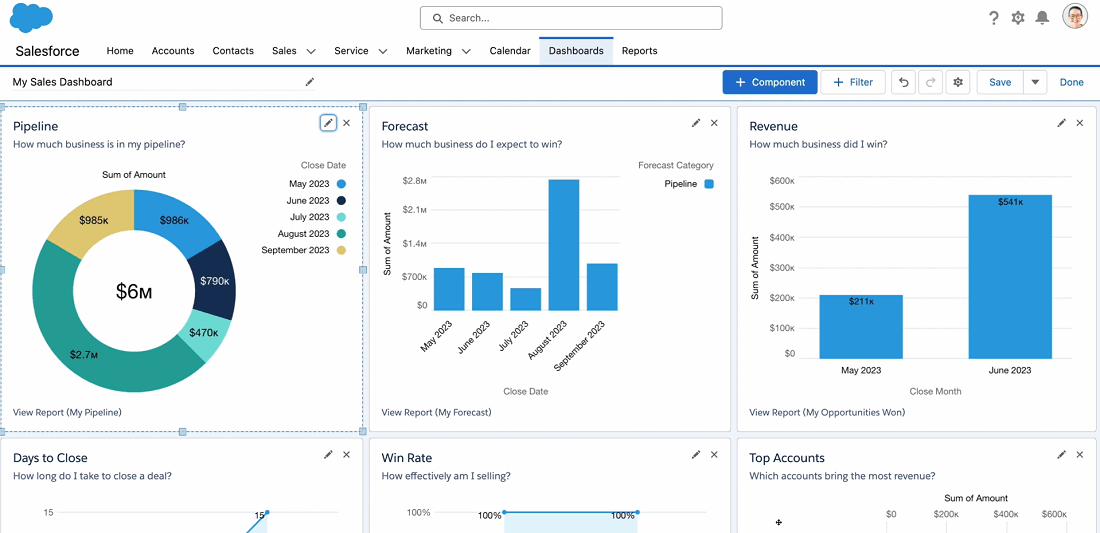
Why we like it
Salesforce is often the brand people think about when they hear CRM. It’s an all-in-one solution, and various solar companies have used it to develop their CRM. Salesforce isn’t just a CRM platform; it also educates you and shows you how to use its features, among many other things.
However, it can be overwhelming for someone who just wants a simple solution. Prices start at $25/user/month, depending on the package you choose from Sales, Service, Marketing, and others.
The most important features for Solar Businesses
I would be here all day if I discussed all of Salesforce’s features. So, I’ll just mention three that will help you manage your business better.
- Customer 360: This tool lets you create a comprehensive system of customer profiles. These profiles include pertinent client data and give a shared view of your clients.
- Sales: Use automation to boost your sales. It improves your team’s productivity and engagement while providing comprehensive analytics.
- Marketing: You have a data cloud for marketing and analytics to help you create a successful campaign. Personalize your marketing for better results.
Pros
- Globally-trusted CRM for solar companies
- Customer 360 provides comprehensive client management
- Excellent scalability
Cons
- It has a difficult onboarding process and requires developer assistance

Why we like it
Insightly is another CRM that tailors itself for this industry. Solar companies like Better Earth and Orbit Energy & Power use this software.
Insightly has a free version for two users, and its paid packages start at $29/month/user. However, it separates its packages into CRM, Marketing, AppConnect, and Service. The All-in-One solution’s pricing starts at $349/month and includes two users.
The most important features for Solar Businesses
Insightly boasts that its software can triple your revenue. Enhance your revenue using the following features.
- Marketing: Automate specific tasks and attract new leads to your company’s website. You can run marketing campaigns at scale.
- CRM: Improve your client relationships and increase sales profits. The onboarding process is easy and keeps track of your clients and sales.
- Service: Implement a ticketing support system and build a reliable client relationship. Patient portal insights and analytics are also available.
Pros
- Exceptional scalability
- Free version for up to two users
- Dedicated solar solutions
Cons
- Mobile apps don’t have offline access

Why we like it
While it’s not the best CRM for a solar business, I like it because it has fantastic email automation and marketing features. Staying in touch with clients and generating new leads has never been easier.
While there’s no free version, the packages start at $29/month. You can also decide if you want a sales-focused, marketing-focused package or a bundle.
The most important features for Solar Businesses
Check out the following features that help enhance the operations of your solar company:
- Marketing: Track your website statistics, automate tasks, and keep up with your marketing. It also helps design successful landing pages.
- Sales: Learn about your win probability and score leads with better engagement and sales automation. Track your sales and which leads are likely to convert.
- Transactional: The email API ensures you can monitor email delivery analytics and start message streams. It also provides SMTP emails.
Pros
- Advanced communications and email marketing services
- Integrates CRM with various other features
- It boasts over 900+ integrations
Cons
- It isn’t tailored towards this industry specifically
Considerations for Small vs. Large Solar Companies:
The best CRM and financial package for a solar company depends on its size and aspirations. Of companies using CRM, 43% of users don’t even use half the available features. As such, always implement a system that works for your business instead of just looking good on paper.
Small businesses often have a tighter budget and focus on growing their company. As such, they don’t necessarily need all the features that a Pro or Enterprise CRM would provide. Instead, they require excellent value for money, easy-to-use software, and a scalable solution. The software must be able to grow with the company.
Meanwhile, large-scale enterprises are well-established players, so they can often afford to splurge a bit. The more expensive packages often feature advanced tools and more users to optimize the company’s experience. There are also more customization options, which are ideal for a business with an established brand identity.
Conclusion
Solar CRMs are essential in this rapidly growing industry to help businesses organize their clients and operations. Various software are tailored specifically for the market, while others offer features that’ll work inside the market. Always consider what your company needs and get a tool that supports its users.
FAQ
-
1) Are CRMs required in the solar paneling industry?Yes, as the industry grows and businesses acquire large client bases, CRMs help these companies properly manage and engage with clients and sales.
-
2) What’s the best solar-focused CRM software?The best software depends on your company’s needs, as it offers the essential tools and fits your budget, requirements, and staff.
-
3) What key features should solar businesses look for in CRMs?While it depends on the company, often the following key features are good to have: Third-party solar application integrations Marketing automation and management Client database and management Client targeting and mapping services as a bonus

